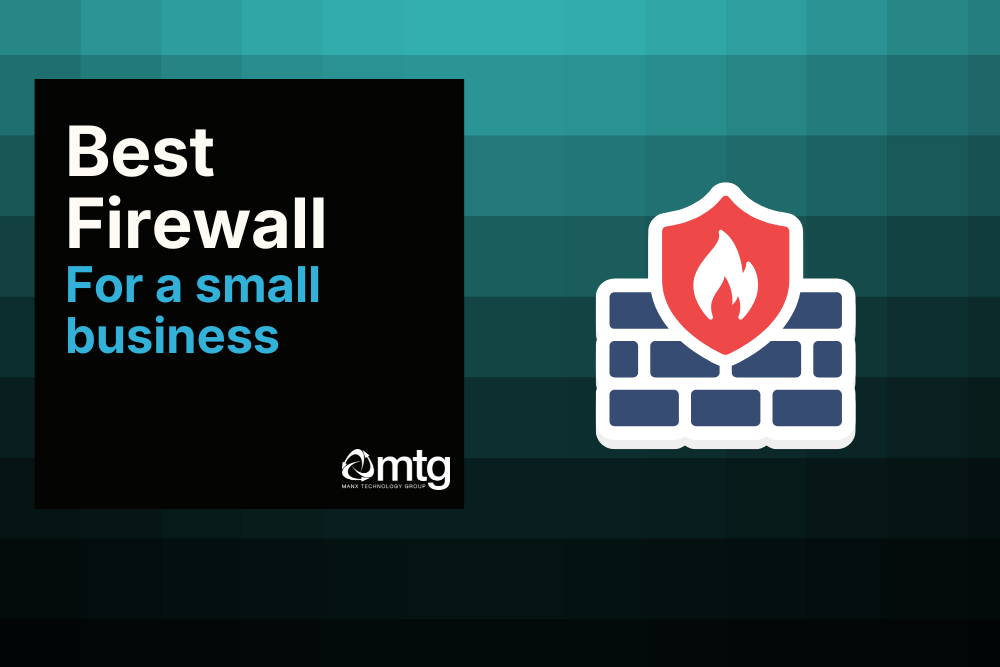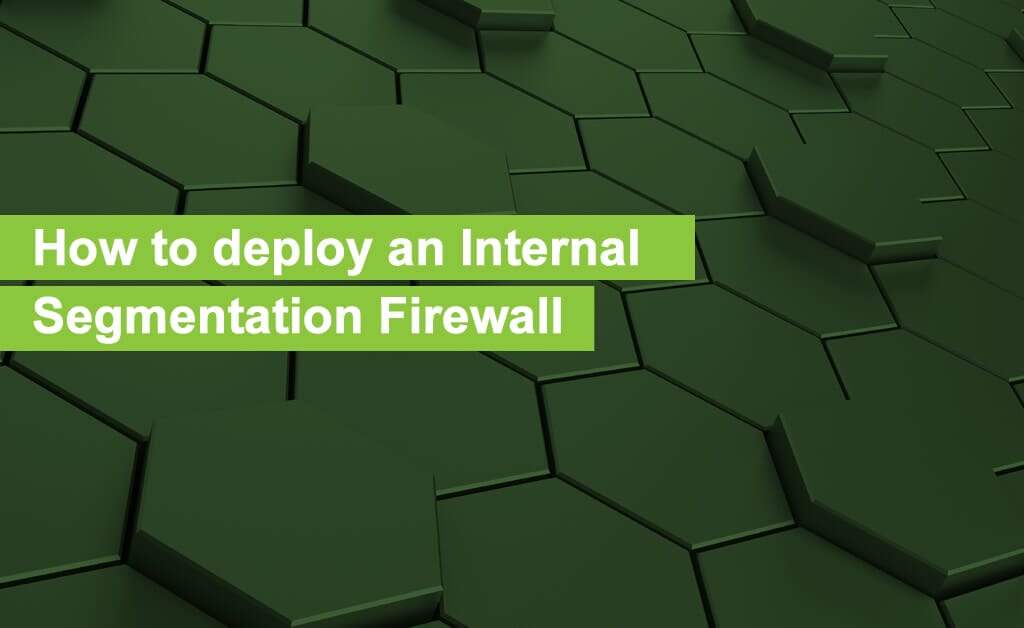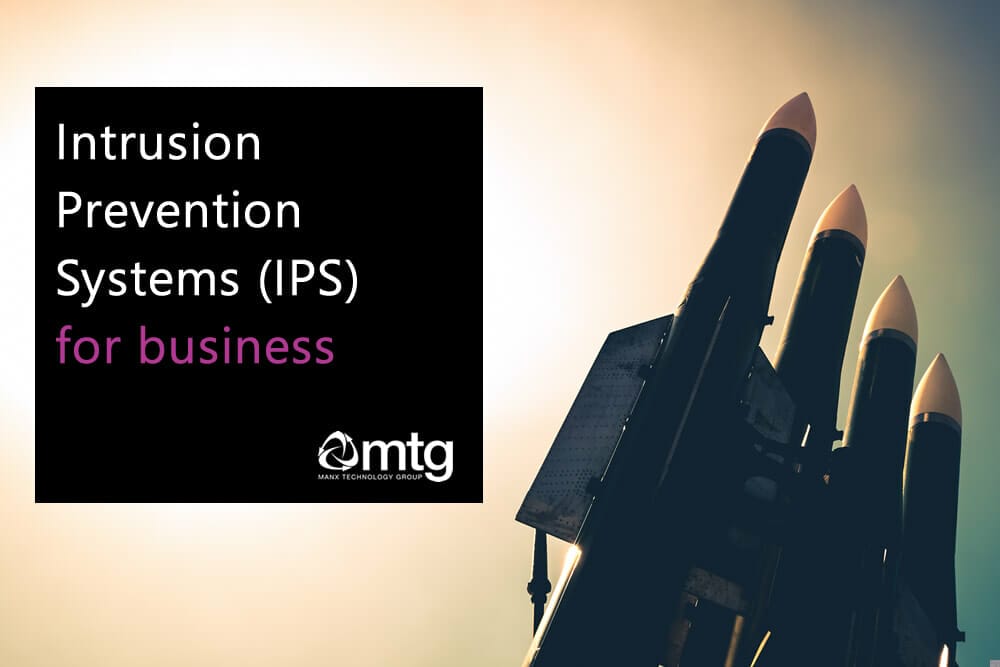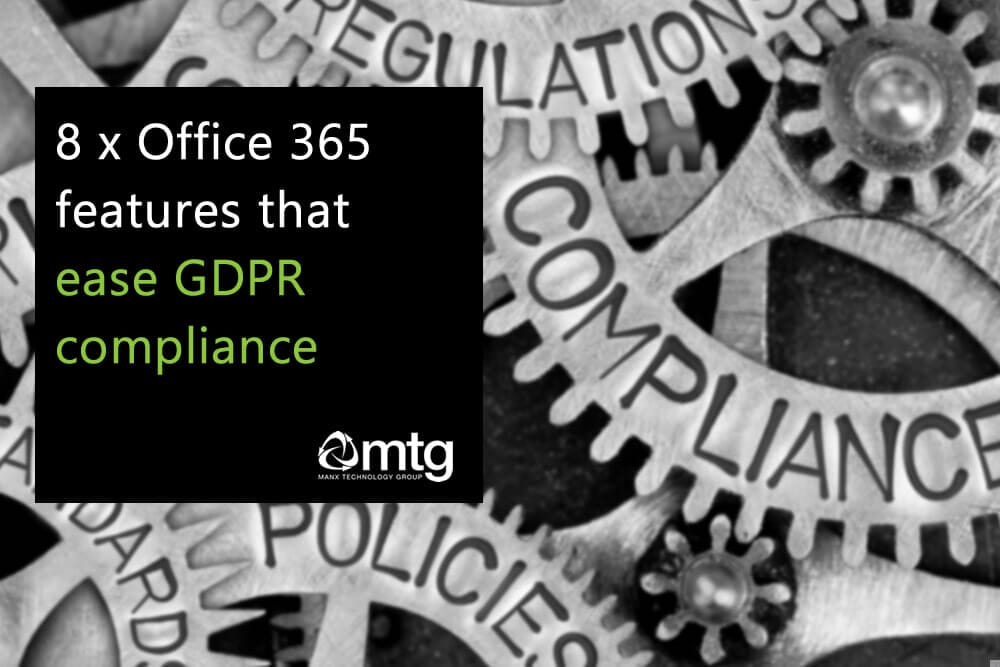The majority of small businesses will already have a router, but a firewall is specifically designed to protect your network. With more complex threats, the functionality and features of firewalls and routers have evolved to include services such as intrusion prevention (IPS), antivirus, web filtering and anti-spam; often – all in one box.
With the UK Government reporting that 43% of data breaches affect small business, all SMBs should really have a network firewall protecting their business.
We work with a growing number of small-medium businesses (SMB) who have a need to protect their businesses from hackers, ransomware and other threats.
Small Businesses are a target
Small businesses have historically lacked the security capabilities that are often found at larger enterprises, primarily due to the cost and complexity of firewalls.
The reality is that data breaches increasingly hit smaller organisations, either because attackers want their data or to gain access to the larger businesses they work with. Compliance and regulations such as GDPR only emphasise the need for SMB to be ready to defend themselves against attack.
According to the UK Government’s 2025 Cyber Security Breaches Survey, approximately 43% of UK businesses (roughly 612,000 organisations) identified a cyber attack in the last year. While large enterprises remain high-value targets, the report highlights a concerning rise in disruptive incidents for smaller firms, with the number of businesses losing access to files or networks nearly doubling in the last 12 months. These figures emphasise that for small businesses, a professionally managed firewall is no longer optional – it is a critical requirement to defend against increasingly sophisticated, automated threats.
Router or Firewall?
This is a difficult one. The truth is most routers have firewall functionality, and firewalls have router functionality – therefore the terms are often used interchangeability. Generally speaking, firewalls have a more advanced feature set that is designed to offer a superior level of defence than when compared to a traditional router. These devices can also be referred to as VPN Routers, VPN Firewall or Firewall Appliances – they generally mean the same thing.
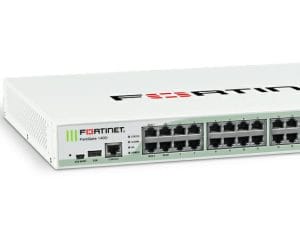
Many would see your typical wireless router as more of a commodity device, suitable for home users and perhaps home offices. Very rarely do consumer routers have the same levels of performance or security capability. If you own or work for a small business, you should really be considering a firewall to protect the business. In this post – we explain why. A managed firewall for small business should be an important piece of equipment to safeguard your business against internet threats.
Feature set
The features that you should be looking for when choosing the best small business firewall or router should include:
- Internet Connection Support. Many firewalls will support ADSL, VDSL, Fibre, Ethernet and in many cases 5G. Make sure the firewall you select is compatible with your internet connection.
- Wireless Support. Most small businesses will use WIFI in some form. Nowadays you should be looking at 802.11AC/802.11AX for the best performance and where possible, you should be able to secure the wireless network using a Pre-Shared Key, usernames/passwords and ideally, the firewall should feature a WIDS (Wireless Intrusion Detection Service)
- Antivirus. Gateway antivirus means the firewall scans your downloads and e-mails for viruses on the device, adding an additional layer of defence to your existing antivirus on your PC/Servers.
- Intrusion Prevention Service (IPS). The IPS scans traffic and looks at patterns that may indicate a potential attack or exploit against your network or desktops/servers. The IPS can identify the pattern and instantly block the attack. Effective IPS solutions rarely feature on an SMB router, but are common on a small business firewall such as the Sophos.
- Web Filtering. The primary purpose of web filtering is to control what websites your staff can access or not. Besides filtering content, an important feature is blocking access to known “high-risk” websites, those websites that host viruses and other malware.
- Reporting. This is key. The ability for your firewall to alert you or your managed firewall provider in the event a virus, malware or attack is detected. This should be easy to use, preferably in the form of a weekly executive summary.
- Virtual Private Networks (VPN). VPNs allow remote access to the workplace from home, mobile or on the road. Leading SMB firewalls will support IPSec and SSL VPNs that allow you to connect into the office network from anywhere on the internet. Site-to-Site VPNs allow you to connect multiple sites onto one network, linking up remote offices, factories and other sites.
- Zero Trust Network Access (ZTNA). Similar to VPN, ZTNA provides secure remote access, but has added features to provide more granular levels of control.
- Software Defined WAN (SD-WAN). SD-WAN gives you greater flexibility when it comes to controlling internet access or guaranteeing service to particular applications.
- Technical Support. This is important. Technical support can be provided by the vendor or by your managed firewall partner. This means you don’t have to worry about the configuration, monitoring or setup.
What about management and setup?
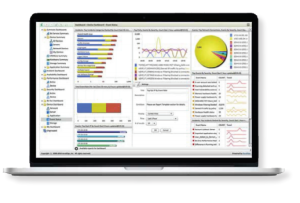
Most firewalls and routers can be made to work by a competent IT person, but unless configured effectively – rarely will this configuration result in an increased level of protection.
We would recommend that you engage an expert who can not only configure the firewall, but they can tailor the configuration to suit the exact needs of your business. This ensures you get the maximum value from the firewall, but also the highest levels of protection – which is the primary purpose of the device.
Many customers choose to focus on their core business and outsource the management of their firewalls to a company like Manx Technology Group (MTG). MTG then look after the configuration, setup, monitoring and support. If you need help – give us a shout. We service customers throughout the world with their firewall management and configuration.
Regulated Industries and PCI-DSS
In some industries, there is a requirement for a small business to have robust network security or cybersecurity controls.
- PCI-DSS v4.0.1 has various requirements such as ‘Install and maintain network security controls to protect cardholder data’ and ‘Apply secure configurations to all system components.’ Modern security solutions such as Sophos ease compliance with PCI; by utilizing effective configuration and management of these network security controls, you can meet the rigorous requirements set down by the latest PCI standards.
- Cyber Essentials is a UK government-backed scheme that provides a baseline for information security, and its requirements remain a critical standard for businesses in the Isle of Man and the UK. One of its five core technical controls is the use of boundary firewalls to protect every device that connects to the internet. By deploying a professionally managed business firewall, you can ensure that all unauthorised traffic is blocked and that your internet-facing ports are securely configured, fulfilling a primary requirement for achieving and maintaining Cyber Essentials certification.
- IASME Cyber Assurance is a comprehensive standard designed for SMEs to demonstrate a higher level of cyber maturity and GDPR readiness. It builds on the foundations of Cyber Essentials by adding controls for risk management, people, and physical security. Utilising a managed firewall is a prerequisite for this standard, as it provides the essential network monitoring and access control logs required to prove that your business is actively protecting personal data.
- ISO 27001:2022 is the modern information security framework adopted by businesses to manage risks and controls. While previous versions focused on Annex A.13, the updated standard addresses network security and segmentation under its Technological controls (8.20 and 8.22). In a similar approach to PCI, a business firewall remains a primary tool for implementing the network security and segregation levels required for certification.
- Financial Services in many markets has to demonstrate high levels of network security, not least because of regulations such as PCI.
- Retail is another market touched by PCI but with the advent of GDPR – there is a heightened need to protect customer data. Retail is another big user of WIFI for EPOS and handheld devices, which is why a firewall can also assist with wireless PCI compliance.
How much does a small business firewall cost?
Small business firewalls generally range in price from £200 to £1500 depending on the performance, features and security capabilities. We cover this off in a similar blog post entitled – How much does a firewall cost?
There is typically an monthly subscription that covers the antivirus, updates, IPS signatures and other subscription services – which are vital if you want to maintain a high level of protection. This cost can be as much as 20-30% of the purchase price.
Management Fee
The final cost that you need to consider is the management cost, we would recommend all small businesses opt for a managed firewall service. Outsourcing the management and monitoring of the firewall ensures you get a 24×7 service, watching over your business and responding to threats. For more information about MTG’s firewall management service or managed firewalls, please view the respective pages.
The cost of the managed firewall service will depend on the hours of cover, the number of sites and the level of protection required. It is typically a great value service that provides an extra level of protection for the SMB.
MTG can supply and manage firewalls for your business in the UK, Isle of Man and Channel Islands. With solutions from small business to enterprise – speak to us today via e-mail, phone or live-chat.

Sophos Firewalls for the SMB – Advanced Threat Protection
We work with a number of different vendors however, we would always recommend Sophos as the firewall vendor of choice. For small business clients, they have a great value range, an extensive feature set and provide the highest levels of protection for a small business.
MTG believe the Sophos family of products are the best small business firewall/router for the reasons set out above.
What next?
Review the questions below, if you answer yes – you should consider replacing your existing firewall or router with a UTM or Next Generation Firewall. We manage and support firewalls deployed throughout the world on behalf of our customers (as part of our IT support agreements).
- Is your current firewall/router approaching 3 or more years of age?
- Are you concerned about cybersecurity in your business?
- Are you a regulated business or does your business have obligations in regards to cybersecurity?
- Are you ready to add more security to your network?
- Have you upgraded your internet connection or network bandwidth?
- Are you ready to expand or upgrade wireless access in your office? Are you worried about wireless security?
- Are you concerned about malware and data breaches, and interested in increasing the security in your business?
- Do you host your own servers, e-mail or website?
- Do you want someone to manage the network security so you don’t have to worry about it?
If you would like more information on the Sophos firewalls and the complete range of security solutions for SMB, please contact MTG today.
Submit the contact form on our website, click ‘Request a Quote’ or e-mail sales@mtg.im or call +44 1624 777837

